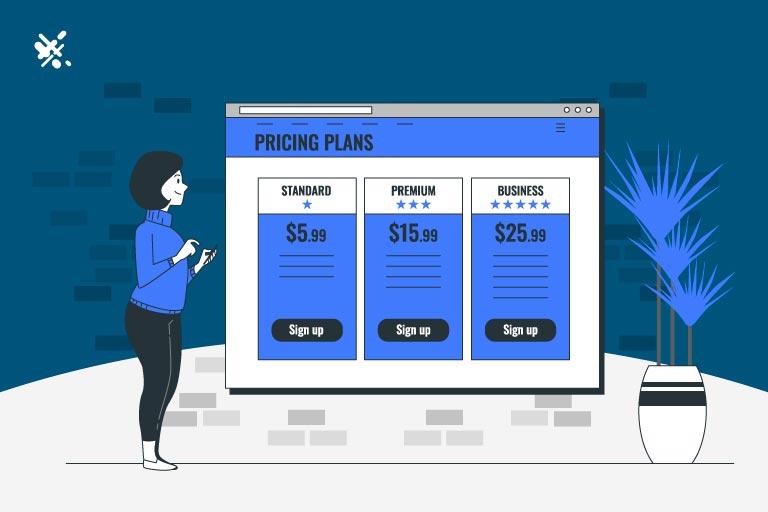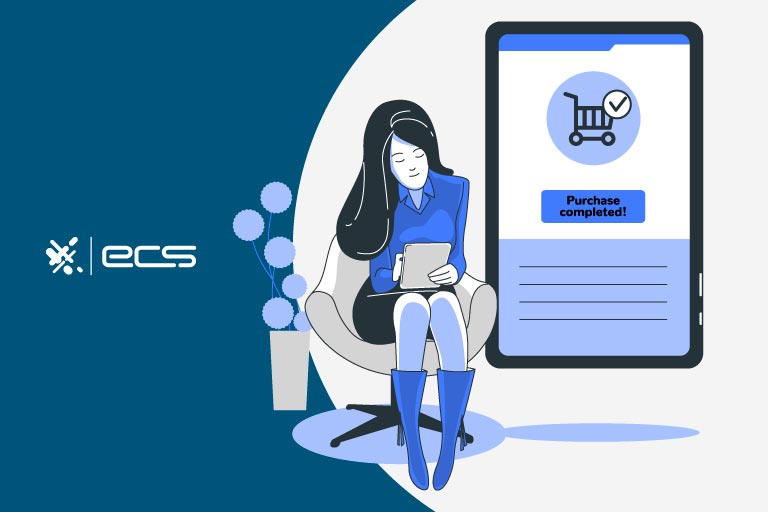If you’re in the market for a payment processor or merchant account, you may need to do a thorough payment gateway comparison. And you’ve no doubt also come across Authorize.net and NMI.
These two popular companies are payment gateways. They work with your payment processor and merchant account so you can accept credit or debit cards online or in person via POS hardware.
As a side note, you may also hear Authorize.net referred to as the “Auth.net gateway” in various online reviews and discussions.
Some payment processors may choose to recommend either Authorize.net or NMI payment gateway to their customers. While some of this may be based on what the customer needs, other times it can be due to the fact that some payment processors only offer one payment gateway option.
However, one size doesn’t fit all when it comes to accepting payments and choosing an online payment gateway. This is especially true for those selling high-risk products. Different businesses have different needs and criteria when it comes to dealing with payments.
In this article, we’ll go over the basics of payment gateways so you fully understand what’s involved and what they do. Then we’ll compare payment gateways so you can make the most informed choice as to which option is best for your business.
What is a Payment Gateway Provider?
It’s important to first understand what exactly a payment gateway provider is. A payment gateway provider is different from your payment processor and this is an important distinction to recognize.
Your payment processor allows you to process electronic payment methods and generally offers a more complete payment solution for your business. The payment gateway provider such as Authorize.net or NMI helps to securely transmit customer billing information between the parties involved in the transaction. This includes the merchant account, the customer, and the credit card issuer or bank.
The payment gateway provider moves the credit card information through the various fraud checks and verification procedures within the flow of payment processing.
When a transaction is approved, the payment gateway provider collects the funds from the transaction. Then moves those funds to your merchant account where you can withdraw them to your bank account.
As you can see from the processing flow, your payment processor and gateway need to work together to process payments via your website or retail location. Because of this, various features of the payment gateway may be better for some retailers depending on their unique situation.
Below, we’ll look at the similarities between Authroize.net and NMI. Then the differences, to help you decide which features are best for you.
Authorize.net vs NMI Similarities
Both Authorize.net and NMI are viewed as universal payment gateways. This means they can both handle a majority of payment options and can work with many different processors.
Both gateways can work with modern mobile payment systems like Apple Pay and also offer support for Android-based devices.
They also both have robust features for online sales and e-commerce and will work with a majority of stores and products. However, there are a few differences between these two gateways when it comes to specific products and we’ll touch on that in the next section.
Payment Gateway Comparison of Features of Authroize.net and NMI
Online Compatibility
Both Authorize.net and NMI are compatible with a wide variety of e-commerce platforms and shopping carts. Some of these do require additional software or plugins to work. But most of these are standard plugins. So you shouldn’t have a problem getting these to work on your site.
However, there are a few differences when it comes to these platforms. For example, around 2018 Shopify stopped supporting NMI as a payment gateway. This was mostly due to Shopify’s changing policy regarding high-risk products and transactions. Since Shopify is a very popular platform, it’s important to be aware of this limitation if you’re considering using the NMI gateway.
There are workarounds involving the use of third-party shopping carts along with the core Shopify platform. Although, if you want to use Shopify, it’s best to just choose Authorize.net due to the easier integration.
ClickFunnels is another popular platform where there is a difference. Authorize.net does not integrate with ClickFunnels, but NMI will integrate easily as your gateway.
So depending on the platforms you use, you may need to choose to operate as either an Authorize.net merchant or an NMI merchant.

High-Risk Processing
If you happen to sell high-risk products or are in a high-risk category, both NMI and Authorize.net can be compatible with your processor.
But it’s important to understand the distinction between your processor and the gateway. You’ll want a processor that integrates both Authorize.net and NMI, depending on your circumstances.
Trusted high-risk processors like ECS Payments easily work with both gateways. So they can offer the most choice when deciding which is best for your situation.
If your high-risk products are sold internationally, NMI may be a better fit for your business. NMI has more international support and can work with more processors around the world.
NMI also generally works better if you are selling a mix of high-risk products along with standard products.
If you’re selling only high-risk products and are mostly selling online in the U.S. or Canada, then Authorize.net can work well as your gateway. In either case, if you plan on processing high-risk transactions, it’s important to go with an experienced processor like ECS Payments. It can offer the flexibility of using either gateway to best fit your needs.
E-commerce and POS Options
Some merchants may have a need to take orders online as well as in a retail physical store via a POS terminal. Some may also take phone orders in addition to the other two options.
In these cases, there are differences between Authorize.net and NMI. For strictly e-commerce sales, Authorize.net is a good choice. It’s used primarily as an e-commerce-only gateway by many online retailers. This doesn’t mean it can’t work for POS or retail settings. But it lacks a few standard features in those areas when compared to NMI.
NMI on the other hand works well for merchants needing more processing options. It offers more sophisticated processing tools such as virtual terminals for phone orders as well as more retail POS tools.
Additionally, NMI offers invoicing and payment links to be sent to customers via email. This can be a nice feature if you are a supplier or wholesaler as well as a retailer.
Overall, both gateways will work with a variety of processing. But merchants with complex e-commerce and retail processing needs will likely enjoy the extra features NMI offers. For strictly online sales, Authorize.net is generally a better choice.
If you’re unsure which gateway may be right for you, contact one of our expert representatives at ECS Payments. We can help you decide which gateway fits your business the best.
PCI DSS Compliance
The Payment Card Industry Data Security Standard (PCI DSS) compliance is a critical area when deciding on a gateway. PCI DSS is a set of guidelines put forth by card issuers for merchants to follow. The guidelines cover how to securely handle customer and billing information.
Because of the possible fines involved with mishandling customer data, it’s important to make sure your gateway and your business are compliant with these protocols.
Thankfully, both Authorize.net and NMI are 100% PCI DSS compliant. They both offer secure handling of customer information when transmitting and storing files.
However, you’ll still need your internal network and systems to be PCI DSS compliant. This is the responsibility of the merchant.
Membership Sites
Membership sites or recurring billing-based business models are very popular in e-commerce. It’s important that merchants are able to seamlessly bill their customers should card numbers or expiration dates change.
Both NMI and Authorize.net offer automatic card updating. This means that once a month, the service polls the card issuers to detect new information. They then will update your billing database.
There is a slight difference between the two with this feature though. NMI updates Visa, Mastercard, and Discovery. Authorize.net only works with Visa and Mastercard currently.
Both gateways do not support this feature for American Express cards. While Discover may be a small percentage of transactions, for those running a recurring billing business, NMI will cover more cards and customers with their updater due to the inclusion of Discover.
It’s important to note that this is a paid additional feature and each gateway will charge a small monthly fee or per-update fee for this service.
Finally, Authorize.net offers a customer information manager (CIM) which stores billing information on their servers, not yours. This makes PCI compliance much easier and may be good for smaller businesses that run recurring or subscription-based businesses.
NMI offers a similar feature referred to as their customer vault. This is an area on NMI’s secure servers where merchants can store customer billing data for recurring purchases.
High-Risk Payment Gateway Comparison Between Authorize.net and NMI
Selling high-risk products or in a high-risk category presents its own unique challenges for billing. This includes which gateway to consider and how that gateway works with your processor.
For starters, it’s important to remember that your processor must not only allow these transactions but also be experienced in high-risk transactions.
Various products and services can be considered high-risk by card issuers. Below is a list of the most common industries that fall under this category.
- Digital Goods
- CBD (hemp-based products excluding clothing)
- Firearms or ammunition
- Health or nutritional supplements
- Coaching or mentoring services
Both Authorize.net and NMI can provide high-risk gateways for these industries in most cases. There can be technical differences though involving whether or not you sell a variety of high-risk and normal products via the same store. There may also be differences between retail vs online or whether you sell internationally.
High-risk processing can be complex if you sell in these categories. It’s best to talk with an expert who can give you advice on your specific situation and product. Contact ECS Payments if you need to sell high-risk products. One of our experts can advise on which gateway is the right choice for maximizing your approvals and sales.
Managing MIDs
MIDs or Merchant Identification numbers allow the same merchant to run various accounts via the same hardware or software.
NMI offers advanced routing that easily facilitates the use of multiple MIDs within the same business or even between business entities that share resources.
If your business requires more advanced MID management, then NMI is likely the better choice in this regard. This generally applies to larger or more complex businesses. So if you’re a small business, it may not be a feature you require.
Reselling or Direct Options
Most merchants will access either of these two gateways through a reseller. This means your payment processor acts as the reseller to offer these gateway services. Some processors will “white label” these and offer them as their own gateway. But they are in reality just using Authorize.net or NMI.
ECS Payments offers transparency and compatibility with both gateways. This way you can know exactly which gateway is right for your business. So there is no possibility of one service being promoted over the other due to issues with reselling.
One difference between these two gateways in this regard is that NMI only sells through resellers. Authorize.net both sells through resellers as well as direct. However, for most merchants, going through a payment processor and reseller will be the best option.
But if you’re a highly experienced merchant and handle large transaction volumes, you may be able to work directly with Authorize.net.

Price Differences
Directly comparing prices with these two gateways can get a bit tricky as a lot of the final price will depend on the type of transactions you’re doing as well as transaction volume and other factors. Your Payment processor may also include a one-time setup fee for most gateways.
Many additional features are priced individually. So each business may end up with a different total cost of ownership depending on their needs.
However, NMI is generally considered a lower-cost option. Many features are bundled in the base gateway fee and transaction fees. These include things like virtual terminal features and more advanced POS options and integrations.
NMI also includes advanced features for running multiple accounts and routing transactions based on volume or other needs.
However, Authroize.net merchants do have the option of many recurring membership features at no additional charge. So once again, depending on the type of business you’re running, Authorize.net or NMI may be a lower-cost option.
It’s also important to note that many merchants will be accessing these gateways through a reseller. And those resellers may have their own pricing structure. However, a lower monthly cost isn’t always better when choosing a payment service provider. Simply because you may not get the support and other features you need.
So when comparing prices between resellers, make sure to compare apples-to-apples.
Final Payment Gateway Comparison Overview
For a majority of retailers, both Authorize.net and NMI should fulfill their needs for payment processing. Both are trusted players in the payment gateway space and are used by countless companies around the world.
There are a few key areas though, where the differences may be substantial though and one will fit your needs better than the other.
For example, if your business falls into any of these categories, NMI may be a better option for you.
NMI Benefits
- If you run a mix of e-commerce stores and retail locations where POS integration and tools are important.
- You run multiple accounts and want to route transactions easily without extra costs.
- You sell a mix of high-risk products and traditional retail products from the same store or different accounts.
- You need greater international support or some of your processors are based outside of the U.S. and Canada.
Authorize.net Benefits
- Your business sells exclusively online or you run a recurring billing or subscription box e-commerce business.
- You process mainly in the United States or Canada.
- You need to use Shopify as a platform and want to run your own merchant account and shopping cart.
Finally, there is compatibility to think about. Both processors work with a majority of shopping carts as well as high-risk-friendly carts. There are only a few exceptions with either no compatibility or require workarounds which may be cumbersome to implement.
So if you already have a site built and running, make sure there is not a compatibility issue before choosing your gateway. If building from the ground up, decide on the processor you want first before developing your site to avoid compatibility issues when it’s completed.

Payment Gateway Comparison Final thoughts: Authorize.net vs NMI
Choosing the right payment gateway is critical to your business. This is even more true if you are selling high-risk products and want to maintain high approval rates.
If you are selling high-risk products or need help deciding on which gateway is best for your business, contact our representatives at ECS Payments.
ECS Payments offers both gateways so we can work with your business and its specific needs to find the perfect fit for you. Other payment processors may only work with one or the other, which limits your options as well as the advice they can offer.
To contact sales, click HERE. And to learn more about ECS Payment Gateway visit Credit & Debit.
